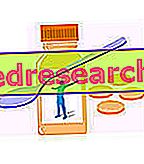This article aims to help the reader in the rapid identification of natural remedies useful in the treatment of various symptoms, disorders and pathologies. For some of the listed remedies, this utility may not have been confirmed by sufficient experimental tests conducted with a scientific method. Furthermore, any natural remedy presents potential risks and contraindications.
If available, we therefore recommend that you click on the link corresponding to the individual remedy to learn more about the topic. In any case, we remind you of the importance of avoiding self-treatment and to consult your doctor beforehand to ascertain the absence of contraindications and drug interactions.

Hypnotic is defined as any substance, natural or synthetic, capable of inducing a state similar to natural sleep, depressing the activities of the nervous system in proportion to the dose taken (it goes from a state of mild sedation to deep sleep or even coma and to death).
There are many hypnotic drugs available on the market today, just as there are many side effects of these medicines. The most widely used and known hypnotics have long been barbiturates, today downgraded by the safest benzodiazepines.
Herbal medicine and herbal medicine offer various natural remedies with hypnotic and sedative properties, generally with a softer effect than synthetic medicines. These remedies can replace the traditional medical therapy in milder cases of insomnia and agitation, or can be used alongside it to reduce the doses of drug intake and mitigate side effects and dependence phenomena.
Synonyms of hypnotic
Hypnotic plants are also known as: soporific, narcotic, sedative, sedative.
Hypnotic medicinal plants and supplements with hypnotic properties
Valerian, Poppy, Cannabis, Chamomile, Hawthorn, Tiglio, Meliloto, Elderberry, Mistletoe, Hops, Kava kava, Escolzia, Passiflora, Withania, Hypericum, Lavender, Melissa, Orange (flowers), 5-hydroxytryptophan, melatonin, theanine, Giuggiole.



